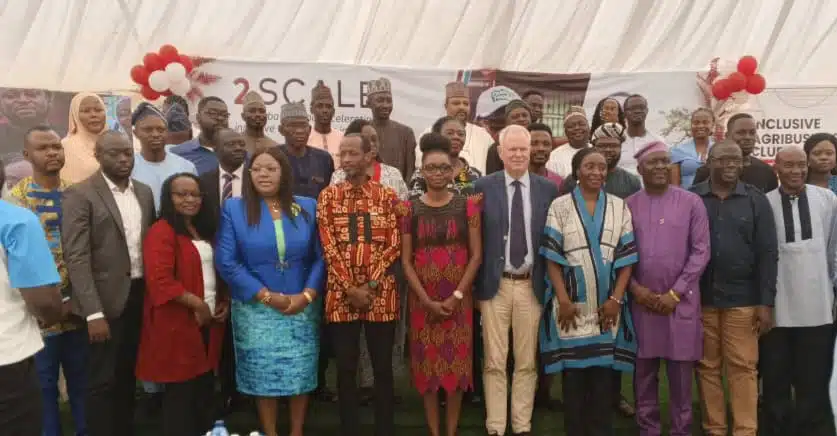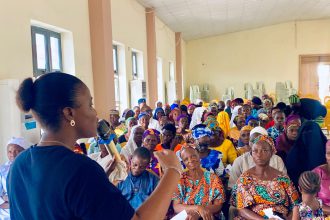Stakeholders in Nigeria’s agricultural sector have stressed the importance of sustaining and expanding the successes recorded in agribusiness to meet the country’s growing food demand.
This was the central theme at the official closing and handing-over ceremony of the Towards Sustainable Clusters for Agribusiness Learning and Entrepreneurship (2SCALE) programme to the Institute of Agribusiness Management in Nigeria (IAMN).
The event, held in Iseyin, Oyo State, attracted dignitaries including the Ambassador of the Kingdom of the Netherlands, Bengt van Loosdrecht, as well as domestic and international partners, farmers, and agribusiness leaders.
After 13 years of driving inclusive agribusiness in Nigeria, 2SCALE, a public-private initiative funded by the Kingdom of the Netherlands — formally relinquished its control to IAMN. Over the years, the programme has connected more than 166,000 smallholder farmers to markets through its incubation and accelerator phases, creating opportunities for farmers and businesses to thrive.
Speaking to journalists, Ambassador van Loosdrecht commended the initiative for setting the pace toward achieving food security in Nigeria. While expressing optimism that the project would thrive beyond donor support, he urged IAMN to sustain and expand the achievements recorded over the past decade.
Meanwhile, the Director of 2SCALE, Marina Diboma, highlighted the programme’s strides, noting that the new custodians have been thoroughly briefed and prepared to consolidate on the successes.
Stakeholders also expressed confidence in the transition. The President of IAMN, Prof. Andi Brisibe, alongside FrieslandCampina WAMCO Nigeria Plc’s Managing Director, Roger Adou, represented by the group’s Executive Director of Corporate Affairs, Ore Famurewa, assured partners and farmers that the initiative would not collapse but rather scale further.
Beyond connecting farmers to markets, the 2SCALE initiative has boosted Nigeria’s dairy sector significantly. Locally sourced milk, which stood at about one million litres annually in 2012, had risen to over four million litres by 2022, thanks to its interventions.
For participants at the Iseyin event, the handover marked a bittersweet moment, a reflection on a 13-year journey of transformation, and the beginning of a new chapter. With proper planning, accountability, and the commitment of IAMN, stakeholders expressed confidence that Nigeria’s inclusive agribusiness journey will not only continue but expand to meet the nation’s rising food demand.








